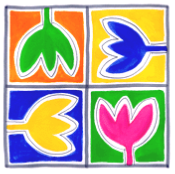
Current research projects
From time to time we plan specific research projects to study topics of high interest in more detail. Sometimes these address only a part of the survivors such as those who live in one region, have had a certain tumor or have received certain treatments. A few ongoing research projects are described below.
Dietary intake, overweight, and chronic health problems after childhood cancer

Poor diet and overweight may increase the risk for chronic health problems after cancer treatment, like diabetes, hypertension, and cardiovascular disease. It is therefore important to get a better understanding of what former cancer patients eat. This project studies if some former cancer patients are more likely to have an unhealthy diet or to be overweight than others.
For these purposes, the project will analyse information from the SCCSS, the national Childhood Cancer Registry and medical records. Launched in 2015, we will complete this project in 2022. Our results will benefit the development of diet recommendations and measures of weight management for former cancer patients.
The project is funded by Swiss Cancer Research (grant number: KFS-4722-02-2019), the Swiss Cancer League (grant number: KLS-3644-02-2015), and FORCE (Fondation Recherche sur le Cancer de l’Enfant). Professor Murielle Bochud from CHUV leads this project in collaboration with the SCCSS Team in Bern.
For more information, please contact Dr Fabiën Belle-van Sprundel (fabien.belle@ispm.ch).
Pulmonary late effects after childhood cancer (SCCSS FollowUp study)
Cancer treatments can lead to lung problems both during and after the therapy. These lung problems often go unnoticed because the lungs can compensate for limitations for a long time. Special lung function tests are harmless and painless examinations and can detect initial lung changes that may be harmful early.
In the SCCSS-FollowUp study, we analyze lung function tests routinely performed in the clinical follow-up care of children and adolescents who survived cancer. The study started in 2022 at the University Hospital in Bern and has since been expanded to University Hospitals in Basel and Geneva. We aim to identify patients prone to developing lung diseases and determine the potential risk factors. By doing so, we hope to improve care provided to former pediatric cancer patients, ultimately improving their long-term quality of life.
This project is funded by the Swiss Cancer Research (KFS-5302-02-2021). Professor Claudia Kuehni leads the project in collaboration with pediatric oncologists and pulmonologists.
For more information, please contact Dr Christina Schindera (christina.schindera@unibe.ch) or Maša Žarković (masa.zarkovic@unibe.ch).
Community-based screening program for hearing loss after childhood cancer
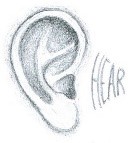
Hearing loss can affect education, social interaction, and quality of life of childhood cancer survivors. It can appear during treatment but sometimes problems start only late, years after end of treatment. Conducting hearing tests in regular intervals is therefore recommended.
This project evaluates a novel, low-threshold access to hearing tests for former patients. It invites them to a free test in a local hearing aid shop. Results are handed out to participants, who can discuss them with their doctor. They are also invited to share a copy of their test results for research purposes.
The project has a participatory approach through a stakeholder advisory group of former patients, physicians, and hearing experts. We will use questionnaires, interviews, and group discussions with all stakeholders to find out whether the target group has been reached and how the project was adopted by hearing aid shops.
The low-threshold approach is cost-efficient and entails a minimal burden to former patients. It contributes to further improvements in cancer treatment, long-term follow-up care and quality of life of childhood cancer survivors.
This project is funded by the Swiss Cancer League (HSR-4951-11-2019). Professor Claudia Kuehni leads the project in collaboration with pediatric oncologists and ENT specialists.
For more information, please contact Sven Strebel (sven.strebel@ispm.unibe.ch) or Philippa Jörger (philippa.joerger@ispm.unibe.ch).
Cardiovascular Late Effects after Childhood Cancer (CardioOnco Study)
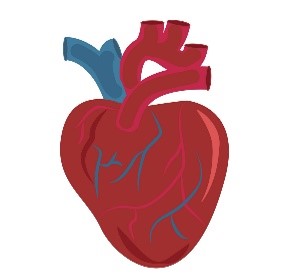
The CardioOnco Study aims to detect heart problems early and to investigate possible risk factors. It uses regular heart ultrasound and also a novel technique, called speckle tracking ultrasound. Speckle tracking has been shown to detect heart problems earlier in adult cancer patients compared to regular heart ultrasound.
This study is conducted as part of regular clinical care in the outpatient clinics of participating centres. It started in 2016 at the University Hospital in Bern and since 2021 is being expanded to additional clinical centres across Switzerland. We hope that we will contribute to earlier detection of heart disease in the future, e.g., by implementing the speckle tracking technique into clinical care, and prevent more severe heart problems, such as heart failure or heart attack in childhood cancer survivors.
This project is funded by Swiss Cancer Research (KFS 5027-02-2020) and the Stiftung für krebskranke Kinder, Regio basiliensis (#2021-F003). Professor Nicolas von der Weid and Dr. Christina Schindera lead the project.
For more information, please contact Dr. Christina Schindera (christina.schindera@ispm.unibe.ch) or Tomas Slama (tomas.slama@ispm.unibe.ch).
Germline DNA Biobank Switzerland for Childhood Cancer and Blood Disorders (BISKIDS)
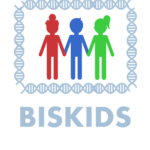
Genetics play an important role in our lives, without us being aware of it. Genetic differences make each one of us unique. But they also determine to some extent how vulnerable we are to late effects of cancer and its treatments.
BISKIDS collects genetic samples from childhood cancer patients and survivors. It was initiated in 2019 in close collaboration with the University of Geneva and the Geneva Children’s Hospital. We mainly collect easy-to-use saliva samples and buccal swabs that participants apply at home and mail to us. So far, more than 500 people from all over Switzerland have participated and samples are being analysed as part of national and international projects. The aim of the project is to have a resource for genetic research. The knowledge generated will be used in the future to adapt therapy and aftercare to each individual patient and thus prevent late effects.
BISKIDS is funded by the CANSEARCH Foundation, Geneva. Professor Marc Ansari leads this project.
For more information, please contact Dr Nicolas Waespe (nicolas.waespe@ispm.unibe.ch).
Genetic Risks for Childhood Cancer Complications Switzerland (GECCOS)
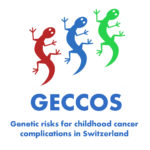
We will use genetic samples from the biobank BISKIDS to better understand which patients have the highest risk for late effects after childhood cancer treatment. The knowledge generated can be used to either change treatments in patients that are particularly sensitive or adapt follow-up care.
This project is a collaboration of the Childhood Cancer Research Group, ISPM, Bern, the University of Geneva, and the Children’s Hospital Geneva. It is funded by the CANSEARCH Foundation, Geneva. Professor Marc Ansari leads this project.
For more information, please contact Dr Nicolas Waespe (nicolas.waespe@ispm.unibe.ch).
